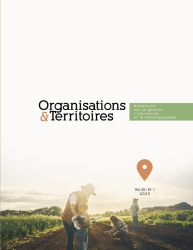La ruralité contemporaine face aux changements climatiques : étude de l’adaptation sur les littoraux touristiques d’une petite ville québécoise
DOI:
https://doi.org/10.1522/revueot.v29n1.1133Keywords:
Climatic changes, agriculture, Rivière-du-Loup, tourism, rural areasAbstract
In urban or regional studies, small and medium-sized cities (SMC) are a specific urban category. In the periphery, these hybrid territories include signs of the urban, but also certain activities associated with rurality (agriculture and conservation, for example). Tourism is often referred to as a solution to agricultural decline and deindustrialization. However, in coastal areas, the tourism sector in the SMCs depends on a fragile environment that is subject to various natural hazards amplified by climate change. In Quebec, the coasts of the St. Lawrence Estuary face several pressures linked to climate change: accelerated coastal erosion, reduced ice-foot, uncertainties with storms, submersion, etc. This is particularly the case in Rivière-du-Loup, a small city in the Bas-Saint-Laurent region. Using the theory of production of space (Lefebvre, 1974/2000), we try to highlight the main issues to adapt the Rivière-du-Loup tourist region. Our research is based on some preliminary results of an action-research in living lab mode that we conducted between 2016 and 2019.



